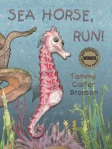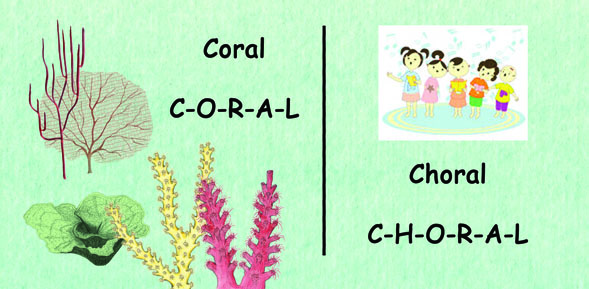Several people (both students and adults) have asked me why I chose to call my new book “Sea Horse, run!” instead of “Sea Horse, swim!”especially since the later seems more grammatically correct. I considered “Sea Horse, swim!” for my book title. I even changed all of the text accordingly, but in the end I chose “Sea Horse, run!” as the book’s catch-phase and title for one reason: poetic license. It sounds like a pitiful excuse, but poetic license is defined as “the freedom to depart from the facts of a matter or from the conventional rules of language when speaking or writing in order to create an effect.”
 Consider that poetry and picture books have a lot in common.
Consider that poetry and picture books have a lot in common.
1) Both are generally short.
2) Both are usually read aloud.
3) Most importantly, word choice is paramount.
Let’s consider each in depth.
1) Picture books are generally under a thousand words, and new or early readers require many one syllable words. Both ‘run’ and ‘swim’ are one syllable, so the length of the words did not help me choose between them. But…
2) Poetry and picture books are usually read aloud. When I wrote the version entitled, “Sea Horse, swim!”, it was awkward to read, especially aloud. The words ‘sea’ and ‘swim’ slur together, and since the phrase is often repeated, I grew tired of stumbling over the words. I knew if I had a hard time reading it out loud then a child would have trouble, too.
3) So ‘run’ sounds better, but why? Word choice. It comes down to a battle of consonants: hard versus soft. Consonants create hard or soft sounds. Hard consonants stop the flow of air by blocking it with the tongue or lips, whereas soft consonants only partially block air flow. In “Sea Horse, swim!” both ‘sea and ‘swim’ begin with soft consonants. This is a problem because the sentence as a whole is a command and using a soft consonant for the verb is not very commanding. By contrast, the ‘r’ in ‘run’ is a hard consonant which stops the flow of air, a nice compliment to the soft ‘s’ in ‘sea’. Using a hard consonant for the verb ‘run’ also gives the statement a more authoritative ring.
Poetry uses words in new, unconventional, or even playful ways. That’s what makes poetry fun. Picture books do likewise. I play with words in “Sea Horse, run!”. For example, Coral is choral in my story, and using ‘run’ instead of ‘swim’ is just another playful use of words.
But before I considered poetic license, I researched the word ‘run’ with respect to fish. If you google ‘fish’ and ‘run’ you’ll find lots of associations and sentences using the two words. For example:
Why do fish run when hooked?
Why do fish run away when you tap the fish bowl?
When are the salmon running?
Water runs.
Rivers run.
Why not let Sea Horse run?
 But I liked “Sea Horse, swim!”, too, so I kept it on one page. Octopus exclaims, “Sea Horse, swim!”, on page 13. Octopi are clever, so I thought his sentence structure should be beyond reproach.
But I liked “Sea Horse, swim!”, too, so I kept it on one page. Octopus exclaims, “Sea Horse, swim!”, on page 13. Octopi are clever, so I thought his sentence structure should be beyond reproach.
Finally ‘swim’ does not communicate a sense of urgency or direction, whereas ‘run’ does. But did you know that some fish can even walk?
http://en.wikipedia.org/wiki/Walking_fish
Will my next book be, “Catfish, walk!”? Probably not, but I will add that title to my ever-increasing list of potential books.
